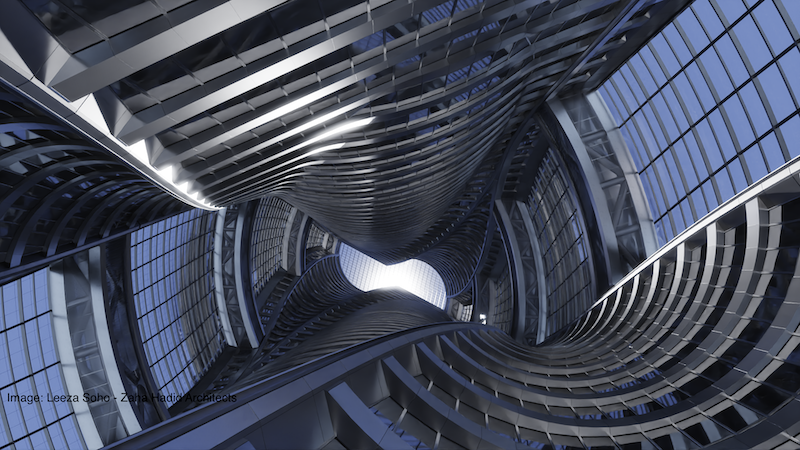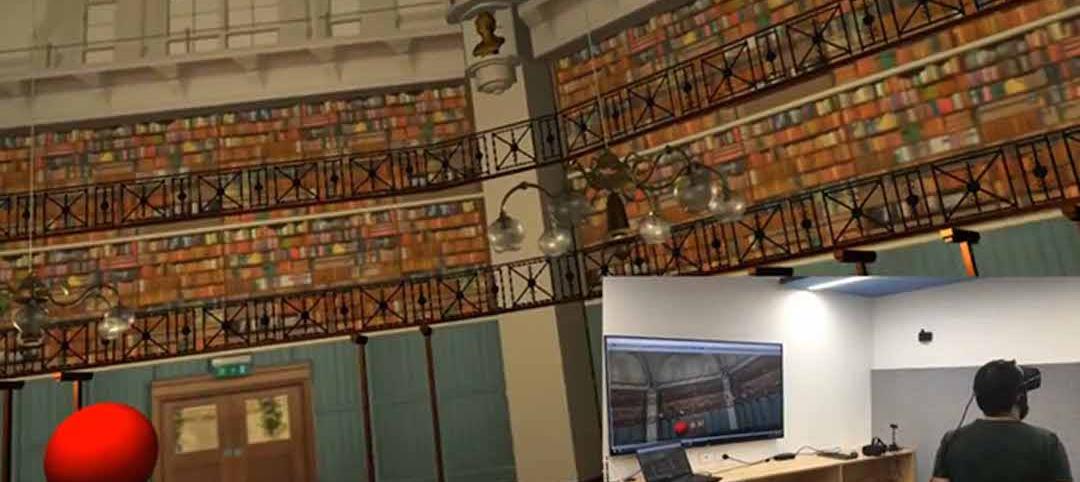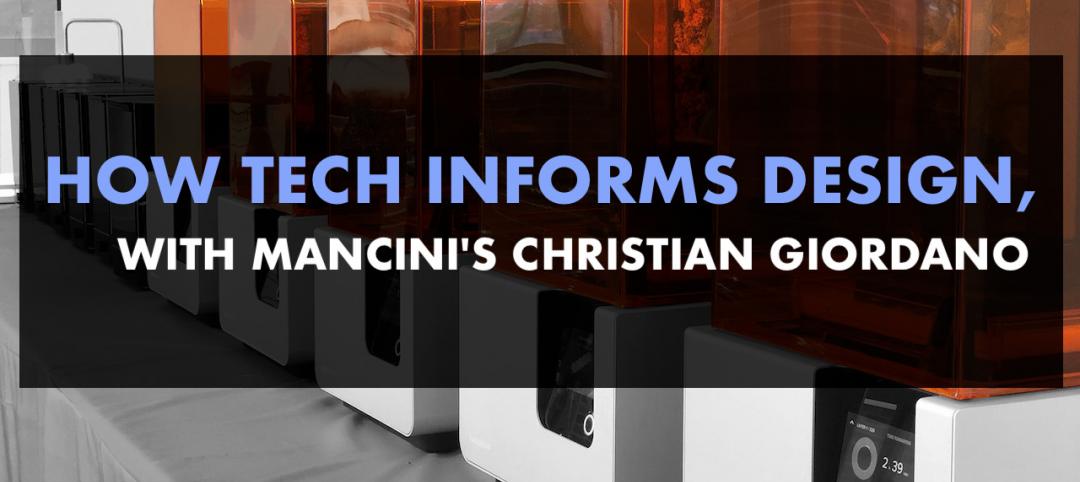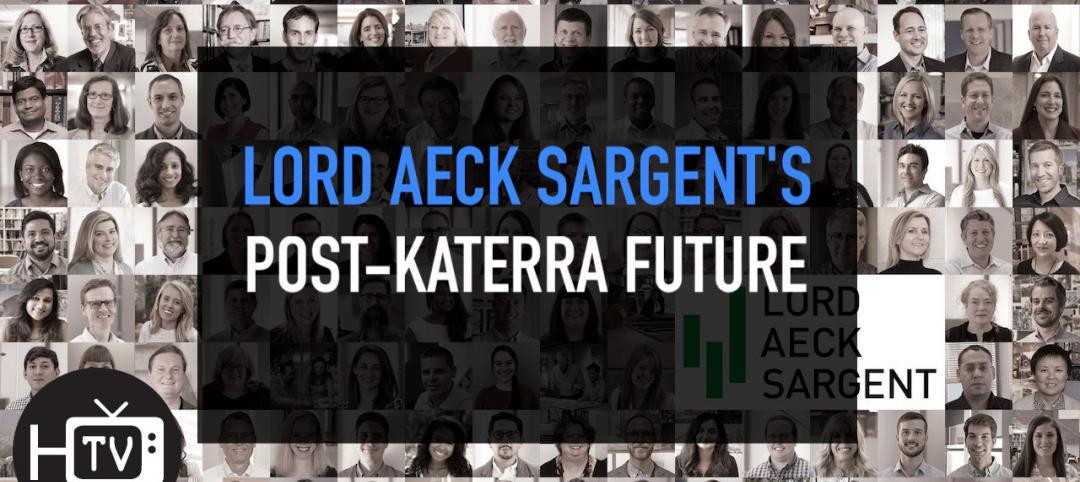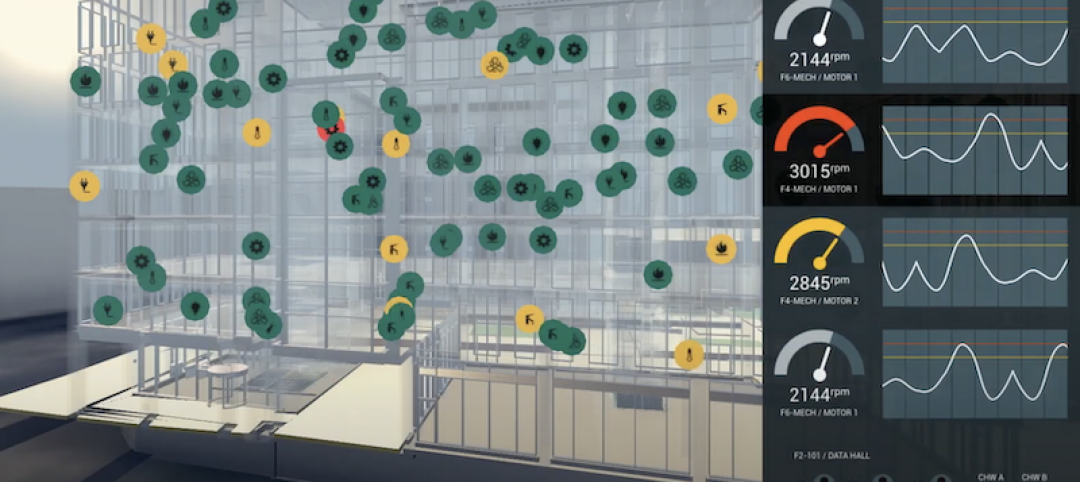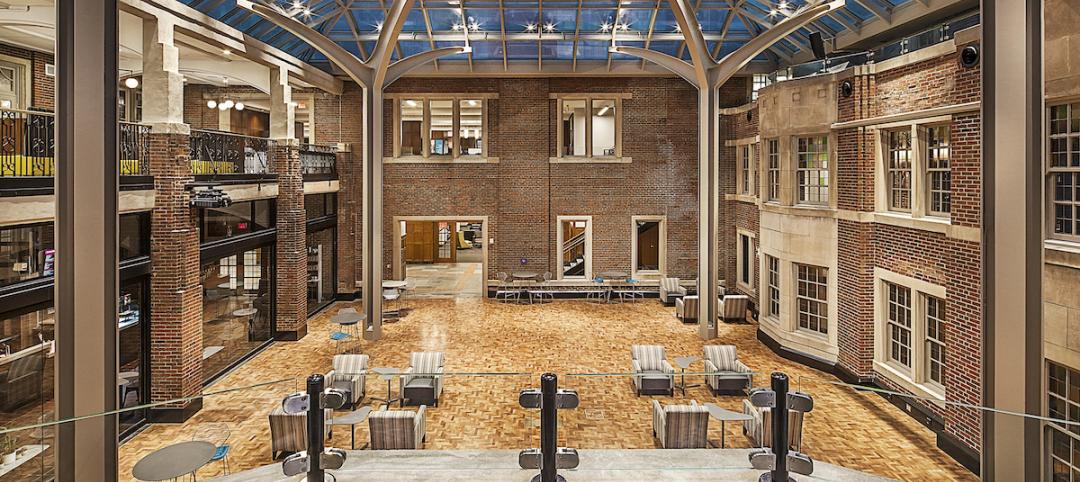One of the roadblocks to collaboration among AEC firms has been the clunkiness of trying to reconcile different modeling and simulation software plug-ins.
Nvidia, a Santa Clara, Calif.-based technology company that designs graphics processing units (GPU) for gaming and professional markets, thinks it’s come up with a solution: Omniverse, which Nvidia describes as the first RTX-based 3D simulation platform that fuses the physical and virtual worlds in real time.
In other words, Onmiverse lets AEC firms using multiple BIM software work together on projects across one platform seamlessly.
Omniverse is based on Pixar’s widely adopted Universal Scene Description (USD), the leading format for universal interchange between 3D applications. About three years ago, Pixar open sourced the entire platform to generate interest from other industries besides animation. Nvidia has built Omniverse on top of USD. The platform uses Nvidia technology such as real-time photorealistic rendering, physics, materials, and interactive workflows between industry-leading 3D software products.
BD+C's The WEEKLY speaks with Wood Bagot's Robert Cervellione and Nvidia's Richard Kerris.
“We can apply multiple GPUs to the platform, and can control how much data gets transferred [during collaboration],” explains Richard Kerris, Nividia’s GM-media and entertainment.
Over 40 firms—included Ericsson, Industrial Light & Magic, and Foster+Partners—and as many as 400 individual creators and developers have been using Omniverse for a year and providing Nvidia with feedback. The platform will go open beta by the end of this year, says Kerris. “We believe this could have huge implications across multiple verticals.” Kerris adds that Nividia hopes Omniverse will be useful for software developers.
OMNIVERSE WILL SAVE USERS VALUABLE TIME
Omniverse’s early adopters include Woods Bagot, the architecture and consulting practice with 13 offices, which is currently exploring the Omniverse platform to have a hybrid cloud workflow for the design of complex models and visualizations of buildings.
Before Omniverse, explains Robert Cervellione, Design Technology Manager for Woods Bagot’s New York studio, “platforms were limited to the software being used.” What makes Omniverse unique, he says, is that the platform can mix such popular plug-ins as Revit, Rhino, and Grasshopper. “Now, we don’t have to spend a lot of time exporting stuff from one plug-in to another. Even a non-technical project manager can see, real time, what’s going on,” says Cervellione.
Woods Bagot is already using Omniverse on several projects it has submitted for competitions. And it’s been testing to make sure that all of the plug-ins remain stable. “It’s such a well-designed system that it takes very little effort to get it to work,” says Cervellione. “It glues everything together.” The next step for his firm, he says, is to roll it out to its offices so that it can be used for live projects.
OMNIVERSE SUPPORTED BY MAJOR SOFTWARE LEADERS
The industry’s major software leaders, including Adobe, Autodesk, Bentley Systems, Robert McNeel & Associates, and SideFX are supporting Omniverse. Blender has been working with Nvidia to add USD capabilities to enable Omniverse integration with its software.
“The importance of our two-year collaboration with NVIDIA cannot be overstated,” says Amy Bunszel, senior vice president for Design and Creation Products at Autodesk. “Projects and teams are becoming increasingly complex and we are confident Autodesk users across all industries will share our enthusiasm for Omniverse’s ability to create a more collaborative and immersive experience. This is what the future of work looks like.”
A complete list of software partners is available at nvidia.com/omniverse.
Related Stories
Gamification | Feb 8, 2022
How gaming technology is changing the way we design for acoustics
Adding 3D sound from gaming engines to VR allows designers to represent accurate acoustic conditions to clients during design.
Coronavirus | Jan 20, 2022
Advances and challenges in improving indoor air quality in commercial buildings
Michael Dreidger, CEO of IAQ tech startup Airsset speaks with BD+C's John Caulfield about how building owners and property managers can improve their buildings' air quality.
AEC Tech Innovation | Oct 7, 2021
How tech informs design: A conversation with Mancini's Christian Giordano
Mancini's growth strategy includes developing tech tools that help clients appreciate its work.
Architects | Aug 5, 2021
Lord Aeck Sargent's post-Katerra future, with LAS President Joe Greco
After three years under the ownership of Katerra, which closed its North American operations last May, the architecture firm Lord Aeck Sargent is re-establishing itself as an independent company, with an eye toward strengthening its eight practices and regional presence in the U.S.
Digital Twin | May 24, 2021
Digital twin’s value propositions for the built environment, explained
Ernst & Young’s white paper makes its cases for the technology’s myriad benefits.
Coronavirus | Mar 11, 2021
The Weekly show, March 11, 2021: 5 building products for COVID-related conditions, and AI for MEP design
This week on The Weekly show, BD+C editors speak with AEC industry leaders about building products and systems that support COVID-related conditions, and an AI tool that automates the design of MEP systems.
AEC Tech | Jan 28, 2021
The Weekly show, Jan 28, 2021: Generative design tools for feasibility studies, and landscape design trends in the built environment
This week on The Weekly show, BD+C editors speak with AEC industry leaders from Studio-MLA and TestFit about landscape design trends in the built environment, and how AEC teams and real estate developers can improve real estate feasibility studies with real-time generative design.
AEC Tech | Dec 17, 2020
The Weekly show: The future of eSports facilities, meet the National Institute for AI in Construction
The December 17 episode of BD+C's The Weekly is available for viewing on demand.
Contractors | Dec 4, 2020
‘Speed to market’ defines general contractor activities in 2020
Contractors are more receptive than ever to ways that help get projects done faster.
Smart Buildings | Nov 20, 2020
The Weekly show: SPIRE smart building rating system, and pickleball court design tips
The November 19 episode of BD+C's The Weekly is available for viewing on demand.


